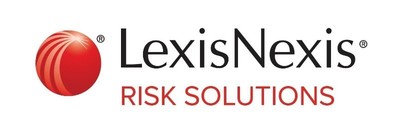New LexisNexis Risk Solutions Report Reveals Financial Inclusion is Accelerating the Adoption of Alternative Data Across Financial Institutions
LexisNexis Risk Solutions has released the Alternative Credit Data Impact Report, highlighting that nearly all surveyed financial institutions report a revenue increase of at least 15% due to alternative data usage. The report reveals that 84% of respondents utilize alternative credit data, particularly in assessing deep subprime and near-prime consumers. It emphasizes the need for financial inclusion, with 37% of leading adopters prioritizing this goal. Although larger banks are more satisfied with alternative data, challenges remain. The report aims to enhance credit risk assessments and improve customer experiences across the finance sector.
- 84% of financial institutions use alternative data, contributing to at least 15% revenue growth.
- Financial inclusion initiatives drive the adoption of alternative credit data.
- Alternative data usage enhances customer experience and risk assessment.
- Larger tier 1 banks are significantly more satisfied than smaller banks, highlighting potential resource disparity.
Insights
Analyzing...
Nearly All Financial Institutions Who Use Alternative Data Indicate It Has Increased Revenue Growth by at Least
Eighty-four Percent (
ATLANTA, Feb. 15, 2023 /PRNewswire/ -- LexisNexis® Risk Solutions unveiled the findings of its Alternative Credit Data Impact Report, a nationwide survey assessing the adoption, utilization and impact of alternative credit data for credit portfolio growth and management in consumer and small/mid-sized business (SMB) lending. The report surveyed those who identify as senior decision makers for marketing, lending and credit risk in U.S. financial institutions such as banks, credit unions, non-bank lenders and fintechs.
Alternative credit data encompasses a broad range of credit risk insights. These insights are typically not included in traditional credit reports and scores including life event insights such as professional licenses and asset ownership and modern credit seeking behaviors from markets like online lending and short-term lending, rental data, consented data and more. When paired with the traditional credit behaviors currently used in conventional credit scores, these non-traditional credit insights deliver a more comprehensive view into a consumer's creditworthiness.
At least two-thirds of financial institutions surveyed use alternative data in their credit risk assessments for underwriting and portfolio management. Eighty-four percent (
Other Key Findings from the Alternative Credit Data Impact Report:
- Adoption of Alternative Credit Data: Alternative credit data usage is becoming more common as financial institutions adopt financial inclusion initiatives. Of the
37% of self-identified leading adopters of alternative credit data,55% named financial inclusion as their top objective, followed by improving segmentation (37% ) and improving the ability to swap in/swap out applicants (24% ). Financial institutions are most likely to use alternative data in their credit risk assessment of deep subprime, subprime and near-prime consumers. Leaders of alternative data adoption are also particularly likely to use it when assessing the credit risk of prime consumers. - Data As a Business Driver: Business drivers for alternative data use include improving pricing strategies, increasing financial inclusion, risk mitigation and gaining a competitive advantage. Nearly all financial institutions surveyed indicated that alternative data has increased revenue growth by at least
15% and improved customer experience. The report indicated that lack of alternative data usage could lead to lost opportunity, customer friction and limited risk mitigation. - Financial Institutions Satisfied Yet Challenged: There is overall satisfaction with alternative data, though there are challenges and barriers associated with utilizing alternative credit data for credit risk assessment. Larger tier 1 banks are significantly more likely than smaller banks to be very satisfied with their data, as a result of having more resources to invest in to obtain alternative types of data.
"The high rate of alternative data adoption across the customer lifecycle reflects how lenders of all sizes are increasingly unsatisfied relying solely on the status quo of traditional credit data to grow and manage their businesses," said Kevin King, vice president, credit risk and marketing strategy, LexisNexis Risk Solutions. "The vast majority of institutions are now using alternative data to assess the creditworthiness of subprime consumers and those with limited credit history, while forward-thinking organizations are achieving significant advantages applying these insights in near-prime and prime segments. This benefits not only the financial institution but the customer experience, helping to ensure lenders present the most appropriate offers to consumers or SMBs, particularly those who might not appear qualified through the lens of traditional data alone."
LexisNexis® Risk Solutions Alternative Credit Data Impact Report Methodology
LexisNexis Risk Solutions conducted its first nationwide survey to assess the adoption and utilization of alternative data across different financial institutions for credit portfolio management and growth. Two phases of research occurred. The first phase involved quantitative surveys; the second phase involved follow-up qualitative interviews. Data collection was performed online and by phone from July to August 2022 with a total of 225 completions in the United States. Respondents included senior decision makers for lending and credit risk in U.S. financial institutions. Upon completion of analysis with the quantitative findings, researchers interviewed 10 consumer credit lending decision makers to provide further context around certain survey results.
Download a copy of the State of Alternative Credit Data Impact Report.
About LexisNexis Risk Solutions
LexisNexis® Risk Solutions harnesses the power of data and advanced analytics to provide insights that help businesses and governmental entities reduce risk and improve decisions to benefit people around the globe. We provide data and technology solutions for a wide range of industries including insurance, financial services, healthcare and government. Headquartered in metro Atlanta, Georgia, we have offices throughout the world and are part of RELX (LSE: REL/NYSE: RELX), a global provider of information-based analytics and decision tools for professional and business customers. For more information, please visit www.risk.lexisnexis.com and www.relx.com.
Media Contact:
Marcy Theobald
678.694.6681
Marcy.Theobald@lexisnexisrisk.com
![]() View original content to download multimedia:https://www.prnewswire.com/news-releases/new-lexisnexis-risk-solutions-report-reveals-financial-inclusion-is-accelerating-the-adoption-of-alternative-data-across-financial-institutions-301746456.html
View original content to download multimedia:https://www.prnewswire.com/news-releases/new-lexisnexis-risk-solutions-report-reveals-financial-inclusion-is-accelerating-the-adoption-of-alternative-data-across-financial-institutions-301746456.html
SOURCE LexisNexis Risk Solutions








